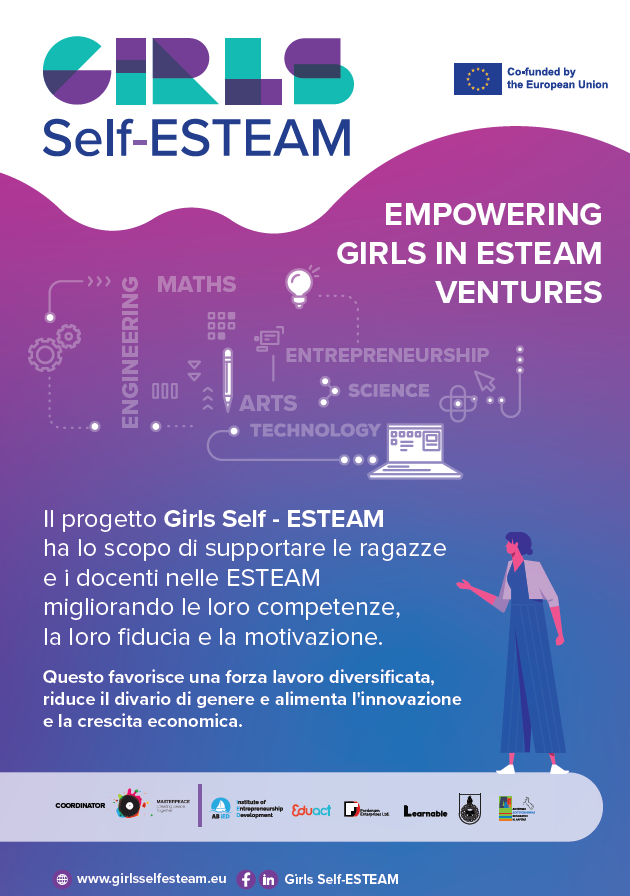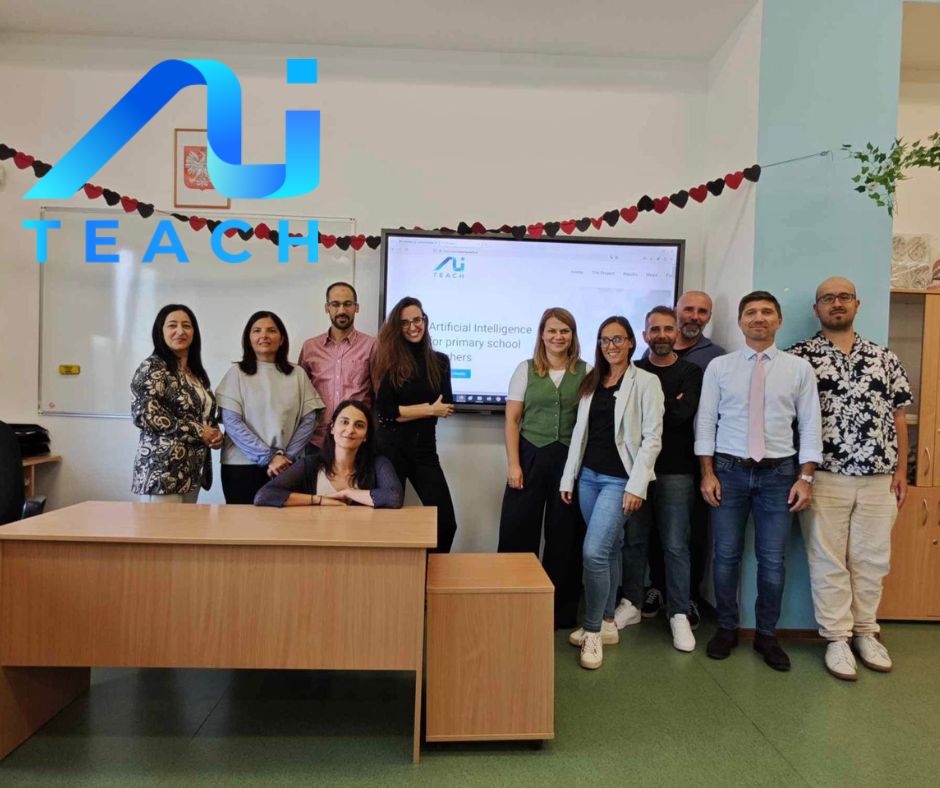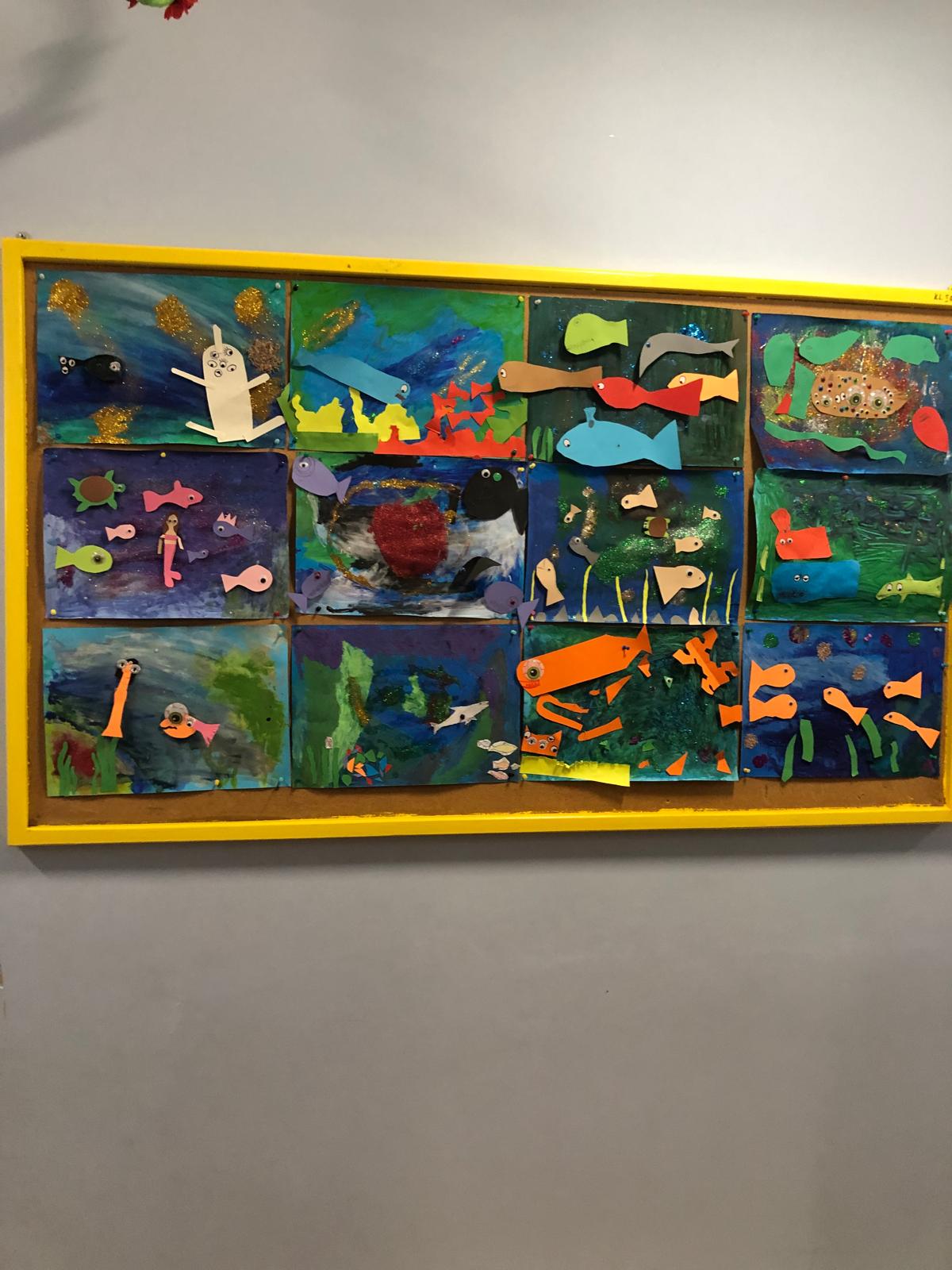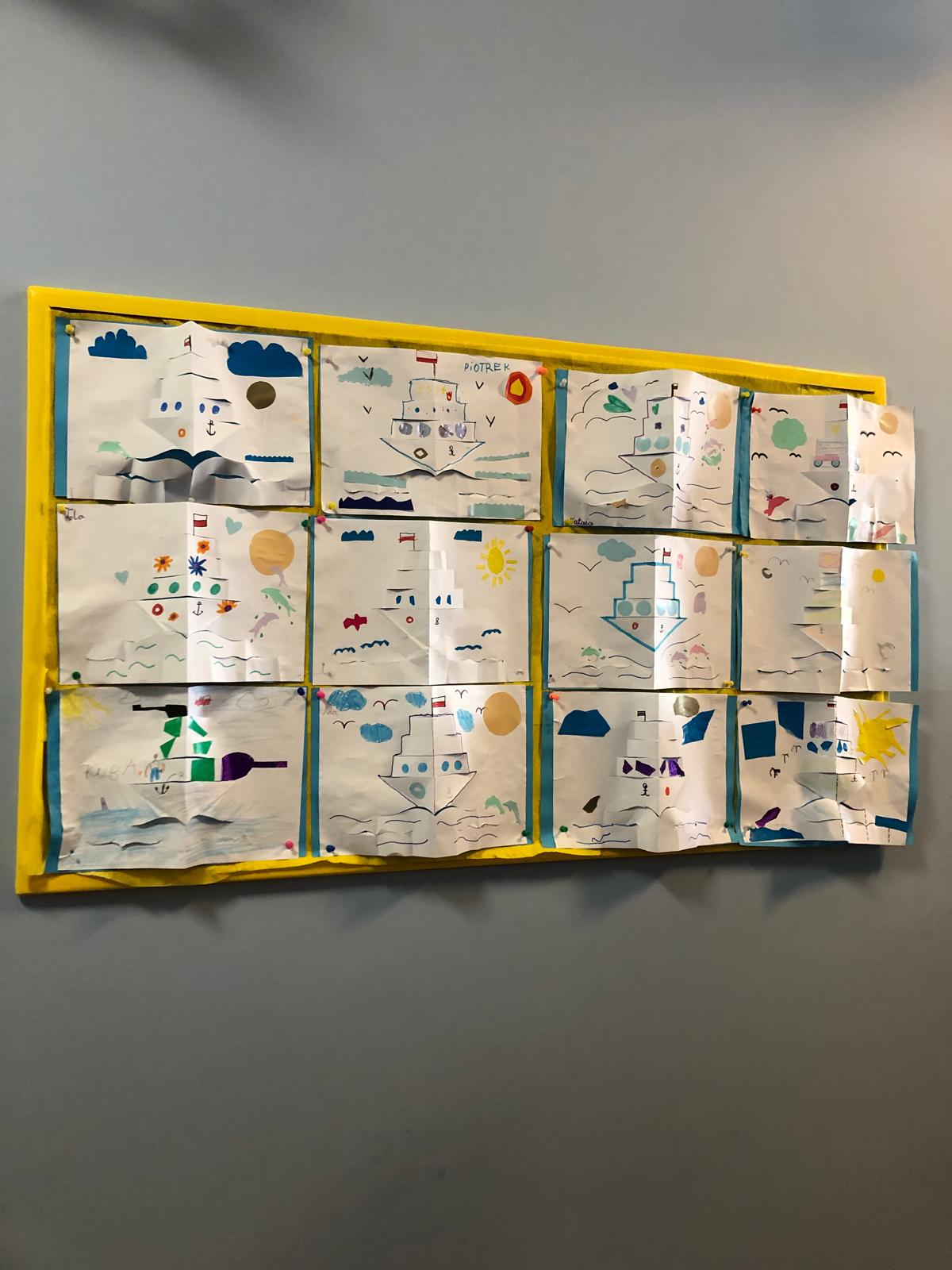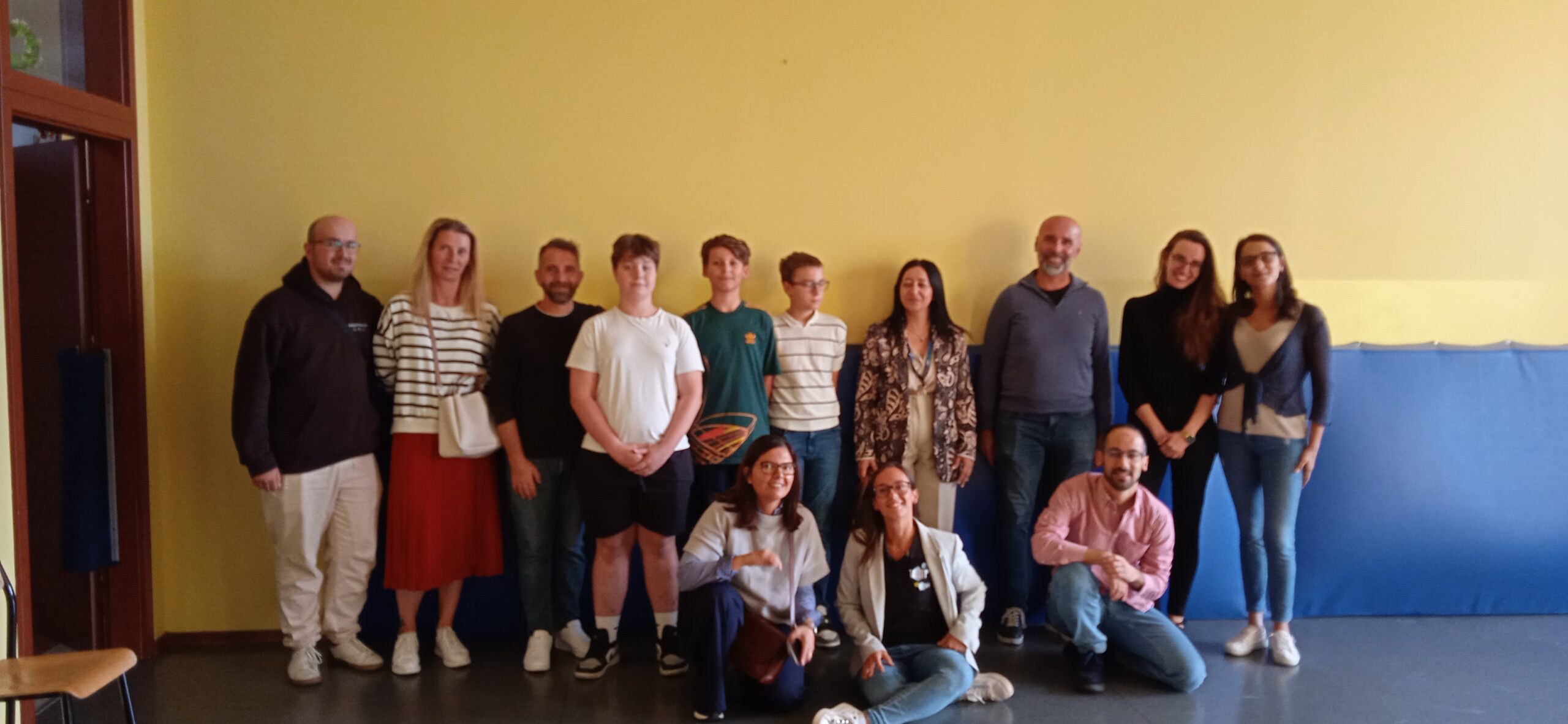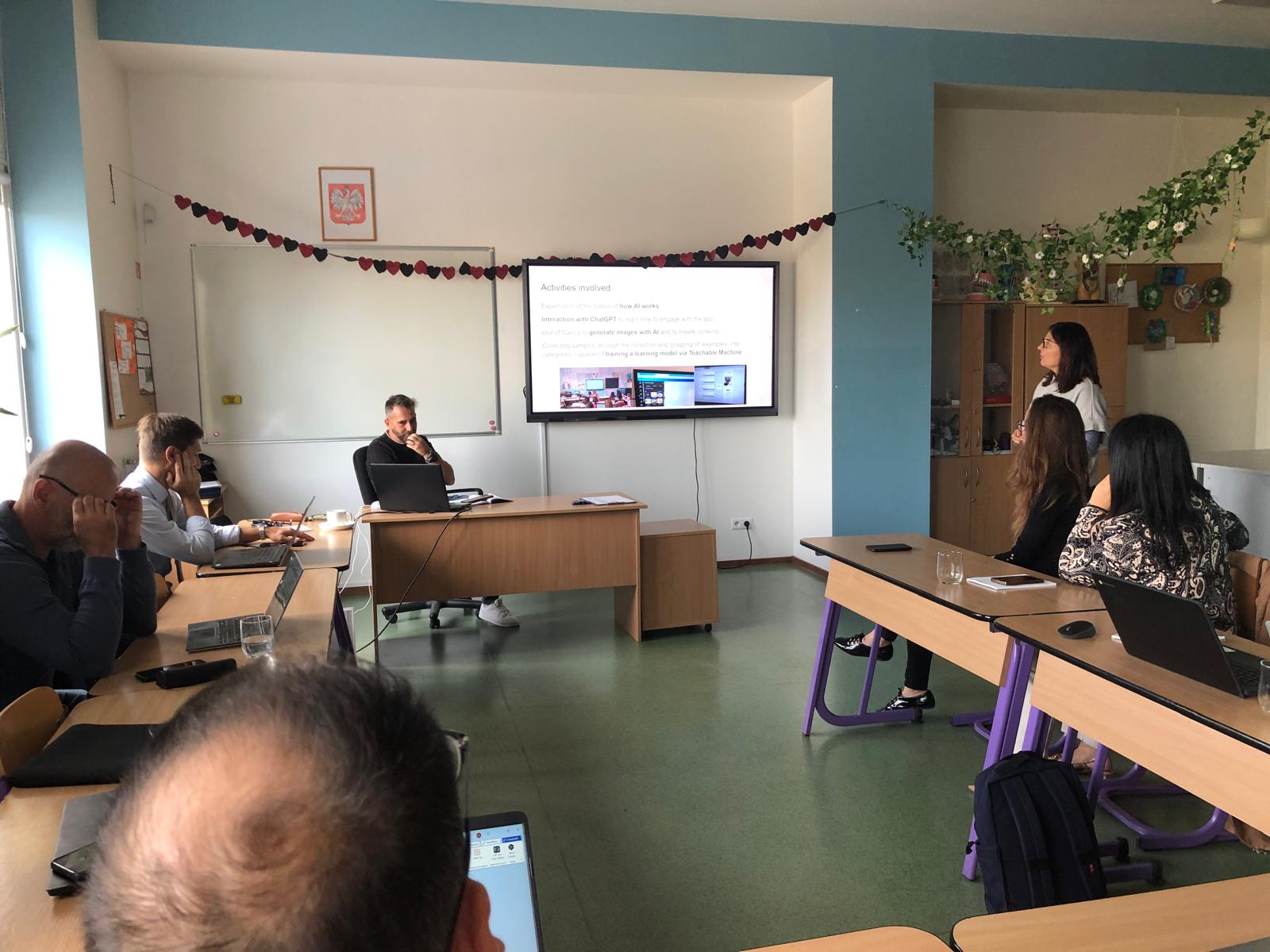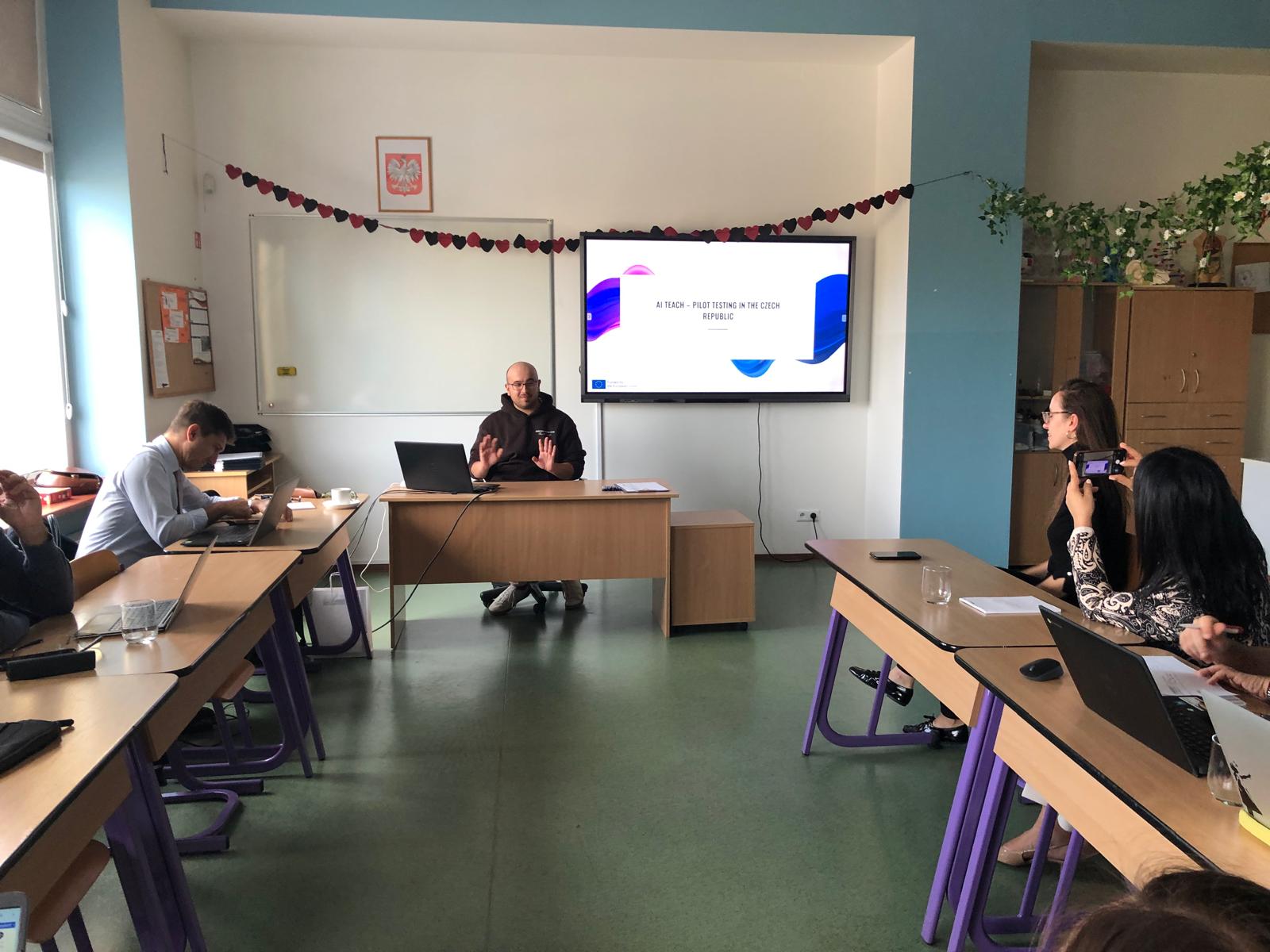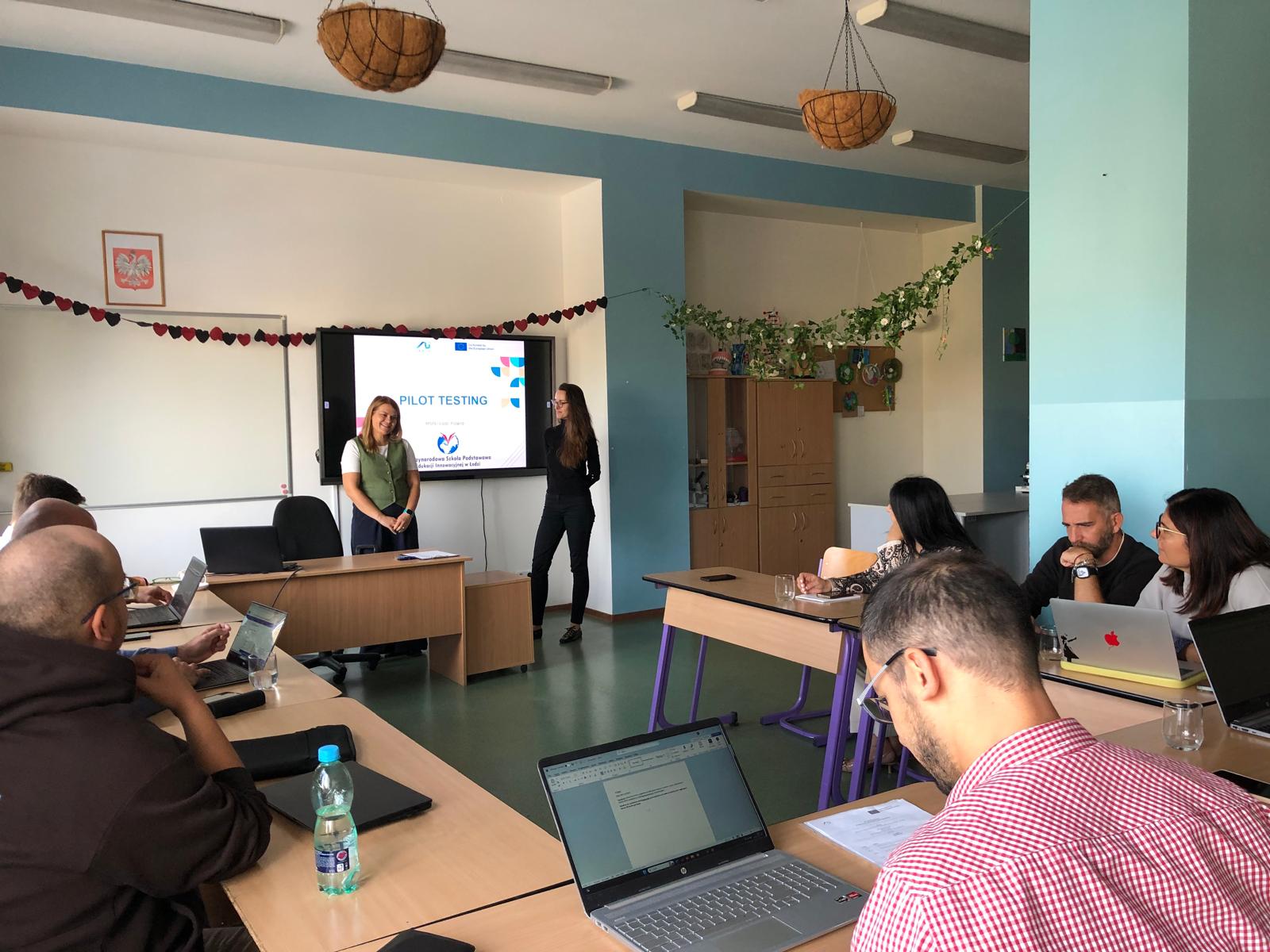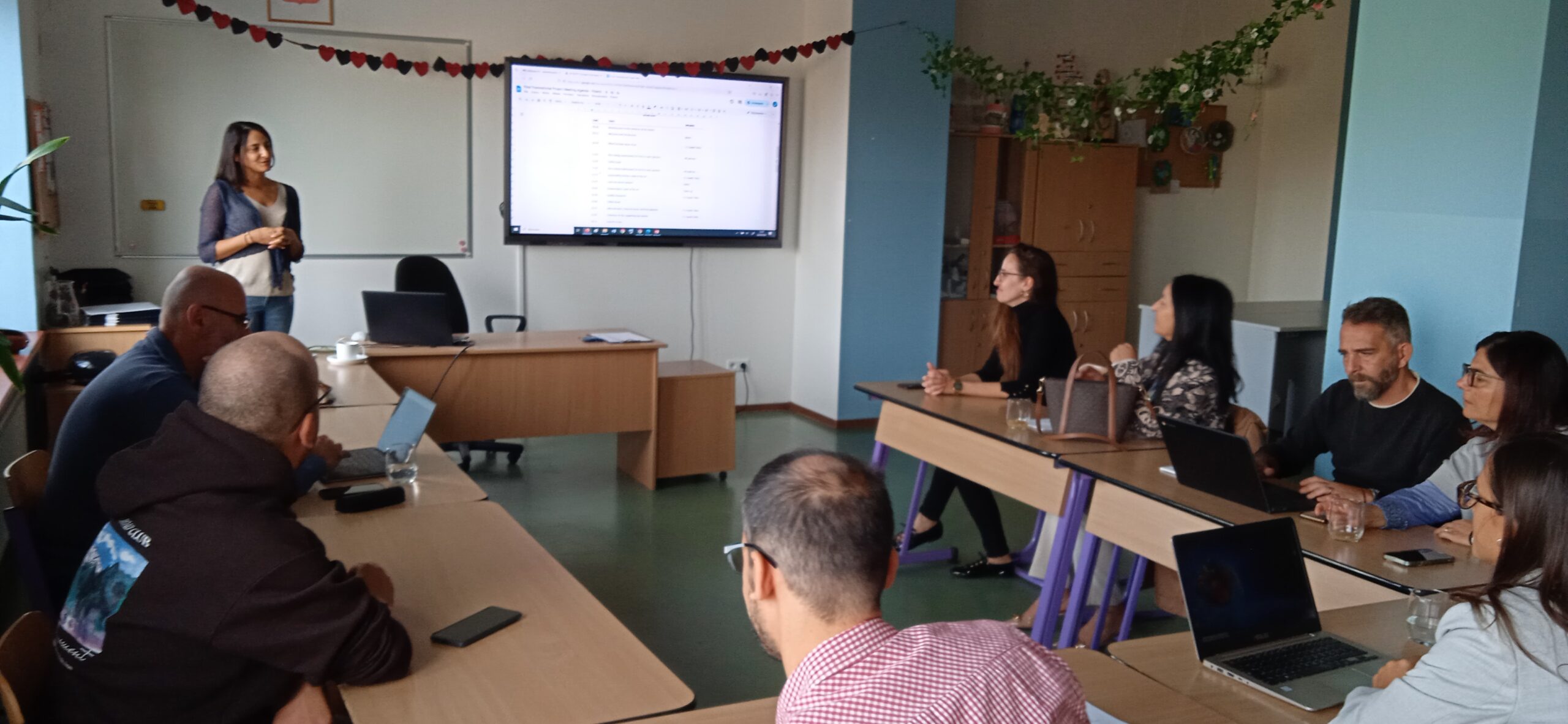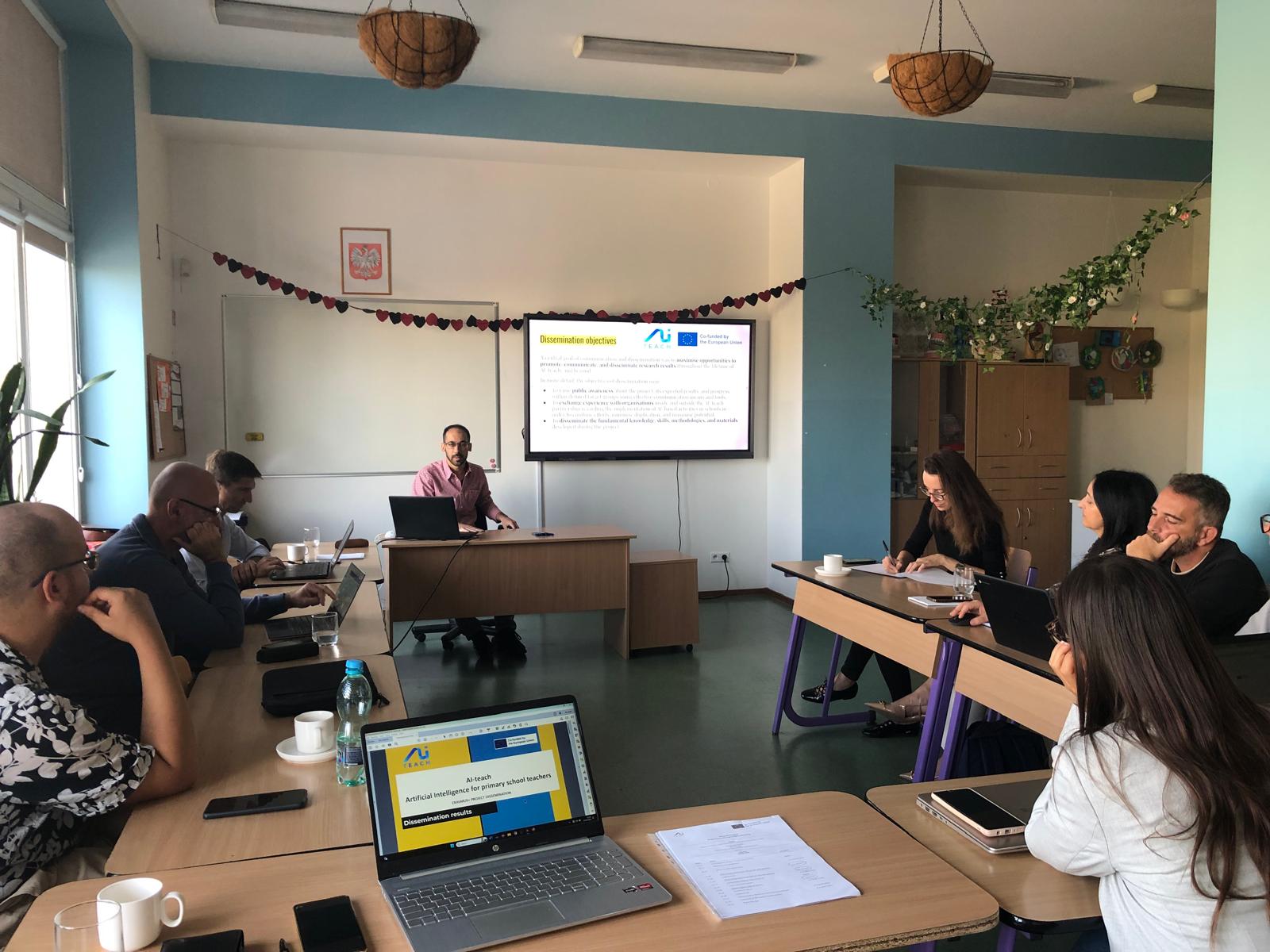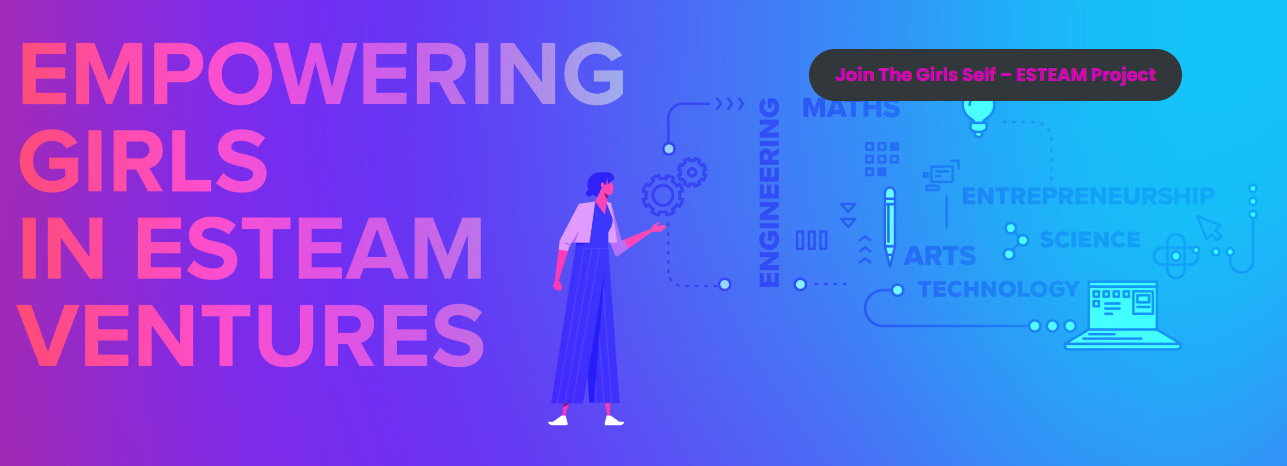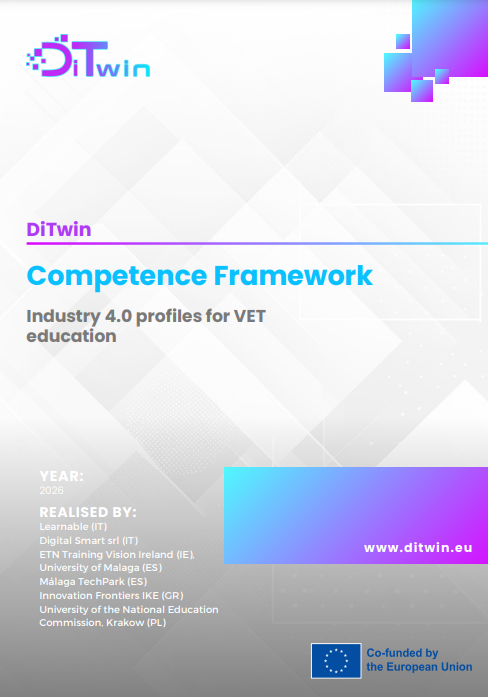Girls Self-ESTEAM project - Leaflet
GIRLS SELF ESTEAM project is a KA2 project co-funded by the Erasmus Plus Programme in the school sector,
The aim is to empower young girls and teachers in ESTEAM by providing the necessary tools and resources to improve their skills and knowledge in these fields, to encourage and support their participation, and to increase their confidence and motivation to pursue and succeed in ESTEAM careers. This will benefit young girls and contribute to a more diverse and inclusive workforce, reducing the gender gap and driving innovation and economic growth.
You can download the project leaflet in English and Italian by clicking the button below:
Feel free to share it with your networks!
To stay updated and be part of the journey:
AI-Teach - Final Transnational Project Meeting
The third transnational project meeting was successfully held in Lodz (Poland) on 24-25 September 2024, hosted by the International Primary School of Innovative Education.
All project partners from 3 countries (Italy, Poland and Czech Republic) attended the two-day meeting with at least 2 staff members per organisation.
A warm welcome was organized by the final-year primary school students, who gave us a tour of the school.
During the various sessions, participants had the opportunity to discuss the results achieved so far and the activities planned by the end of the project.
Special attention has been given to sharing partner experiences during the testing of project results and to discussing the project’s sustainability.
The partners had the opportunity to discuss the initial results of the testing being organized in each partner country. This allowed the partnership to identify improvement actions based on the feedback received, aiming to enhance the quality and usability of the produced results.
A tour of the main attractions of Lodz was also arranged.
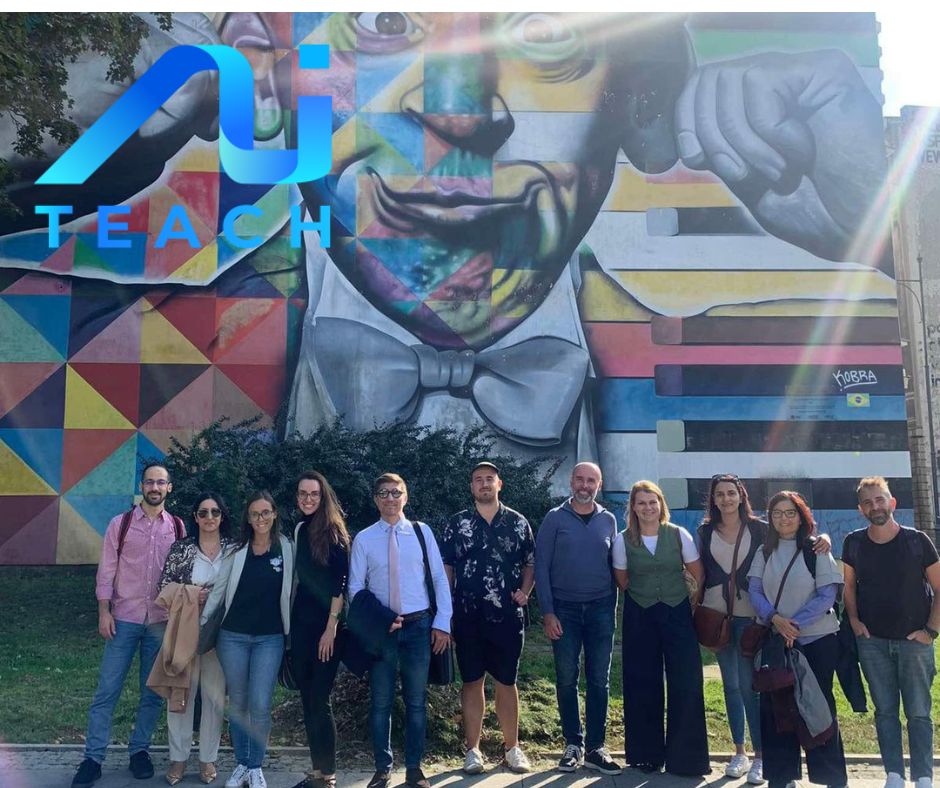
If you are interested in exploring the project, you can visit the official webpage here and the Facebook page.
If you are a teacher and would like to interact with other European teachers about AI in primary education, you can join the dedicated Community of Practice.
UX@School Handbook – first release
The first draft of the UX@School Handbook was produced in English version.
The Handbook is the first project result and is designed for secondary school teachers and educators working in secondary schools, providing them with the necessary knowledge and tools to effectively create learning scenarios with a high level of accessibility, inclusivity, effectiveness, and engagement.
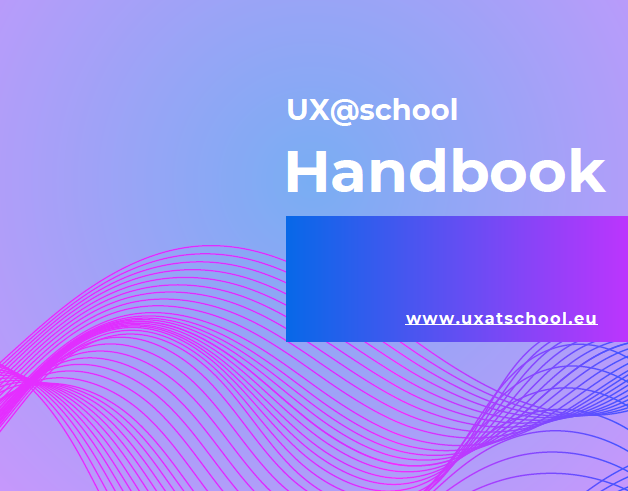
The Handbook is structured into distinct chapters as the following:
1. From the Student-Centred Approach to the UX Design: This chapter provides a comprehensive overview of the fundamental principles of a Student-Centred Approach and how UX Design can be applied in educational settings.
2. The UX@School approach: This chapter explains how to effectively use the UX@School Online Tracking System and the UX@School MOOC within educational contexts.
3. Guidelines, tools, and resources for getting the students’ perceptions: This chapter offers practical guidance on how to get students’ perceptions and feedback, facilitating effective learning processes.
4. School strategy based on UX Design principles: Tailored to educators’ needs, this chapter presents tools and templates for planning a school strategy based on UX Design principles.
5. Tools for improving accessibility, effectiveness, and engagement of digital education materials: This chapter introduces various online tools designed to enhance the accessibility, effectiveness, and engagement of digital education materials.
You can check out the English version using this link. Translated versions in the partnership languages will also be released shortly.
To stay updated on project developments, visit the project website and social media pages (Facebook and Instagram).
Enjoy the reading!
AI-Teach Online Platform
The AI-Teach online platform represents the second result of the project, providing access to all the content included in the Handbook for teachers, facilitating easy online access to the AI-Teach handbook.
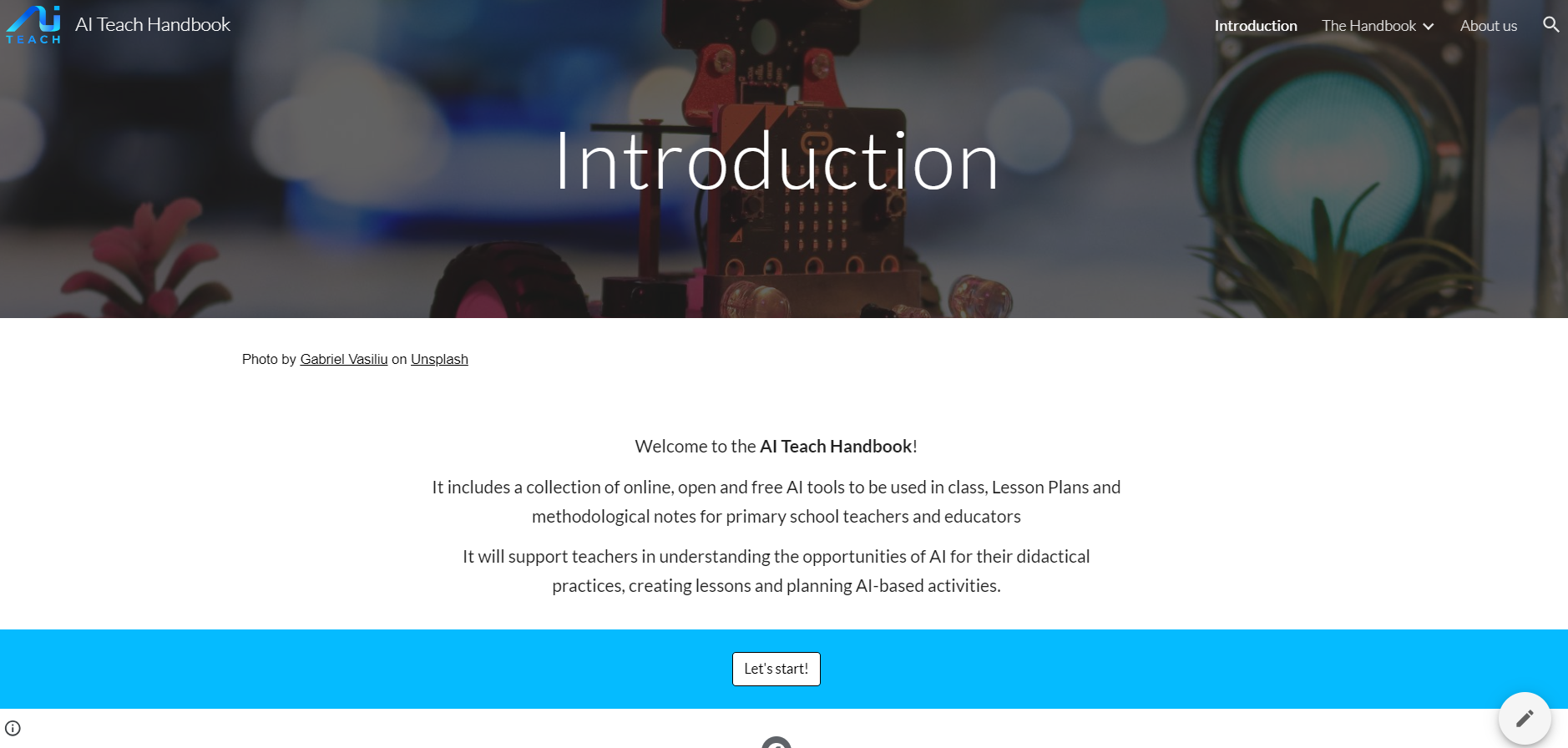
The platform has been published in English and in all partner languages. To access it, you can click on the links below:
-
- 🇪🇺 https://sites.google.com/view/aiteachhandbook-en/introduction
- 🇮🇹 https://sites.google.com/view/aiteachhandbook-it/introduzione
- 🇵🇱 https://sites.google.com/view/aiteachhandbook-pl/wprowadzenie
- 🇨🇿 https://sites.google.com/view/aiteachhandbook-cz/%C3%BAvod
To stay updated on project developments, follow the project’s social media page on Facebook (AI-teach project) and website.
Enjoy the exploring!
Girls Self-ESTEAM project: Call for participation of female role models
GIRLS SELF ESTEAM project is a KA2 project co-funded by the Erasmus Plus Programme in the school sector,
The aim is to empower young girls and teachers in ESTEAM by providing the necessary tools and resources to improve their skills and knowledge in these fields, to encourage and support their participation, and to increase their confidence and motivation to pursue and succeed in ESTEAM careers. This will benefit young girls and contribute to a more diverse and inclusive workforce, reducing the gender gap and driving innovation and economic growth.
The project will develop:
a) ESTEAM educational materials (Curriculum and Training Module);
b) a virtual e-Museum of successful women in ESTEAM fields, featuring female role models and their achievements;
b) Capacity Building Camps and Festival, where young girls, teachers, experts, role models and other stakeholders can participate in workshops, mentoring sessions, and hands-on activities building knowledge, skills and confidence in ESTEAM fields.

We are currently seeking dynamic and accomplished women in entrepreneurship, science, technology, engineering, arts, and mathematics (STEAM) in Italy, Greece, the Netherlands, Turkey, and Cyprus to serve as role models for young girls across Europe.
Sharing your story and achievements can empower and motivate school-age girls to pursue STEAM careers
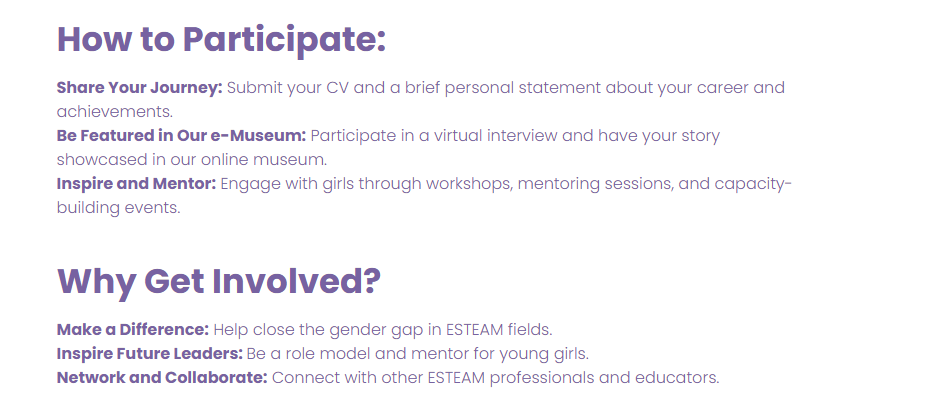
If you have any questions, please write to us at the following email address: giulio@learnable-europe.eu
To stay updated on project developments, follow the social media page on Facebook , Linkedin and the project website.
DiTwin Competence Framework - first release
The first draft of the DiTwin Competence Framework was produced in English version and translated into all partners’ languages.
It is the first project result of the DiTwin project, and it is designed to support VET schools and teachers to continue upskilling VET students with the competencies required by Industry 4.0, connecting the VET sector to the latest developments in the labour market. The main aim is to support the school-to-work transition of VET students, preventing the high unemployment rate of young people in partner countries and workforce shortcomings for the Industry 4.0 sector.
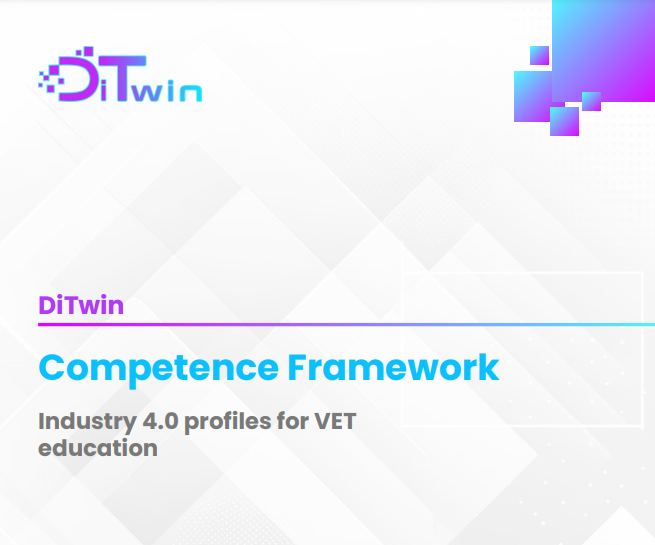
This document references 11 profiles required by Industry 4.0 in partner countries (Italy, Spain, Ireland, Greece, Poland) related to students who have completed the 4th and 5th EQF level of education. They are described in terms of knowledge, skills, and competencies using a common language, based on the learning outcomes approach that can be understood across Europe.
- Additive Manufacturing technician
- Computer Numerical Control (CNC) operations technician
- Computer-Aided Design/Computer-Aided Manufacturing (CAD/CAM) Designer
- Automation technician for Industry 4.0
- IT Communication technician for Industry 4.0
- Data Analyst for Industry 4.0
- Artificial Intelligence (AI) and machine learning technician for Industry 4.0
- Internet of Things (IoT) technician for Industry 4.0
- Remote and predictive maintenance technician
- Robot machines technician for Industry 4.0
- Virtual Reality (VR) and Augmented Reality (AR) technician for Industry 4.0
If you have any suggestions or changes to the document’s contents, please write to us at the following email address: giulio@learnable-europe.eu
To stay updated on project developments, follow the social media page on Facebook , Linkedin and the project website.
Enjoy the reading!


